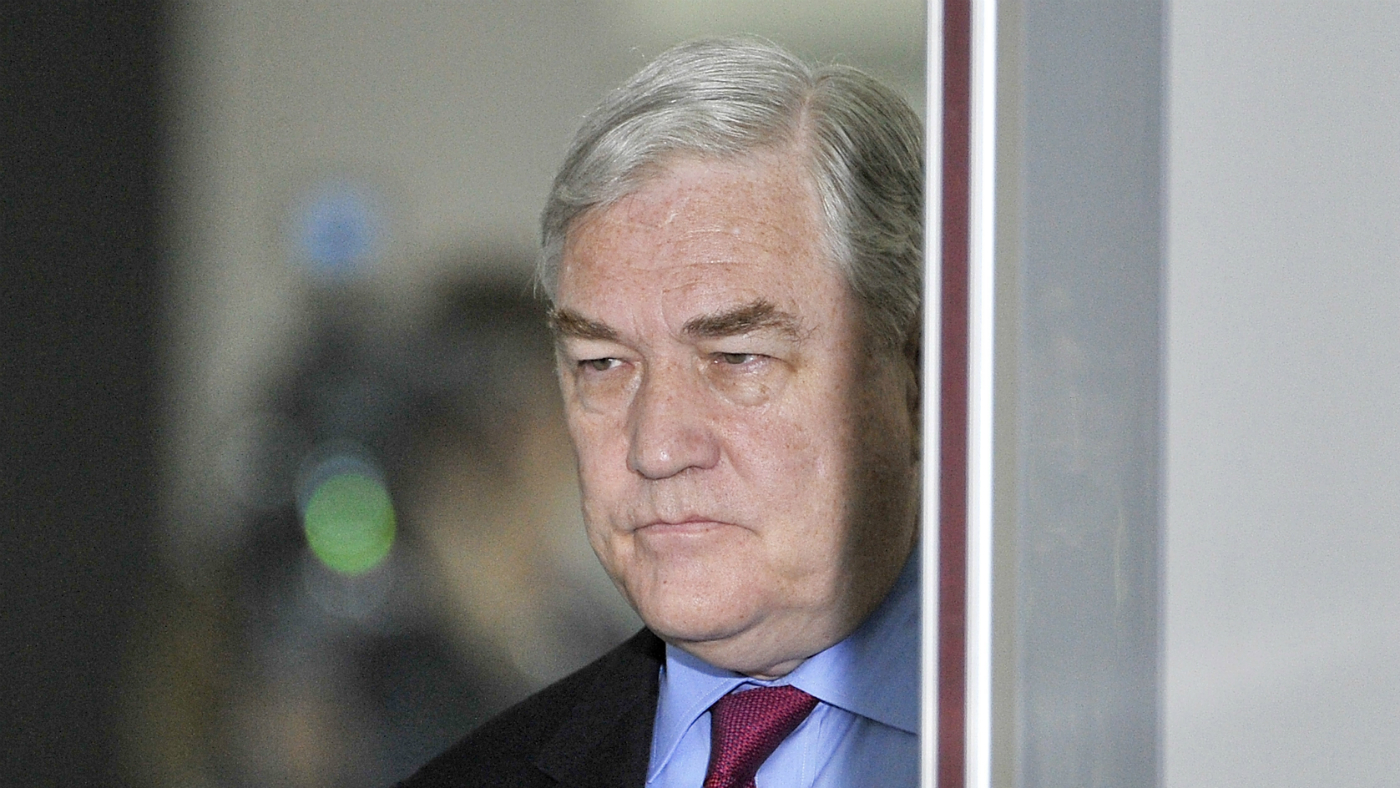What did Conrad Black do?
Donald Trump pardons ex-media mogul and Tory peer who highly praised him in book

A free daily email with the biggest news stories of the day – and the best features from TheWeek.com
You are now subscribed
Your newsletter sign-up was successful
Donald Trump has granted a full pardon to former media mogul and Conservative peer Conrad Black, a self-described “friend” and former business associate of the US president.
A Canadian-born British national, Black once ran an international newspaper empire, but was convicted of fraud and obstructing justice in 2007, Sky News says. He subsequently served more than three years in a Florida prison.
Commenting on the presidential pardon, a White House spokesperson said the peer’s case “has attracted broad support from many high-profile individuals who have vigorously vouched for his exceptional character”. Black made “tremendous contributions to business, as well as to political and historical thought”, the spokesperson added.
The Week
Escape your echo chamber. Get the facts behind the news, plus analysis from multiple perspectives.

Sign up for The Week's Free Newsletters
From our morning news briefing to a weekly Good News Newsletter, get the best of The Week delivered directly to your inbox.
From our morning news briefing to a weekly Good News Newsletter, get the best of The Week delivered directly to your inbox.
Commentators have noted that Black, 74, has been a vocal supporter of Trump and recently published a book praising the US president. NBC News and MSNBC legal analyst Glenn Kirschner said the issuing of the pardon was “as pathetic as it is transparent”.
So why has Trump pardoned Black, and why is it so controversial?
Who is he?
Lord Black of Crossharbour was the head of Hollinger International, a publishing firm that gained control of The Daily Telegraph, Chicago Sun-Times, Jerusalem Post and hundreds of community papers during an acquisition spree in the 1980s and 1990s.
A free daily email with the biggest news stories of the day – and the best features from TheWeek.com
Although born in Montreal, he “renounced his Canadian citizenship to become a peer” and was ennobled in the UK in 2001, The Times reports.
The Guardian adds that he was put forward for a peerage by the then-Conservative leader, William Hague, and sat on the Tory benches until his fraud conviction.
The newspaper says that Black is “currently on a leave of absence from the British parliament but has previously suggested he could return”, despite having moved back to Canada following his release from jail.
Why did he go to prison?
Black was found guilty in 2007 of fraud and obstruction of justice. According to US prosecutors, he defrauded shareholders of $6.1m (£4.8m) by paying himself a tax-free bonus from the sale of newspapers, without board approval.
The tycoon was sentenced to six-and-a-half years in federal prison and fined £125,000 (£98,000), and was ordered to repay the multimillion-dollar bonus to Hollinger.
However, appeals resulted in two of his three criminal fraud charges being dropped, with only the conviction for obstruction of justice upheld. Black’s sentence was reduced to 42 months, and he was released from prison in May 2012. He continues to deny all the charges brought against him.
Why has Black been pardoned?
In an article in Canada’s National Post this week, Black said that Trump “could not have been more gracious” when phoning to inform him of the pardon.
“He was granting me a full pardon that would ‘expunge the bad wrap you got’,” Black writes, adding that “the American criminal justice system is frequently and largely evil; I was convicted for attempted obstruction of injustice. It was never anything but a smear job.”
However, critics have pointed to Trump’s close ties with the Tory peer. The Times reports that Black is a “prominent supporter of Mr Trump’s presidency and has called him a friend”. In 2000, Trump “attended a $60,000 birthday party for Lord Black’s wife, Barbara Amiel-Black, and was reportedly prepared to testify in his defence at his trial”, the newspaper adds.
Many have noted that the pardon comes less than a year after Black published a highly flattering book about the president titled Donald J. Trump: A President Like No Other, in which he says that the incumbent “possesses the optimism to persevere and succeed, the confidence to affront tradition and convention, a genius for spectacle, and a firm belief in common sense and the common man”.
Until their recent phone conversation, the pair are not believed to have spoken since Trump took office, but in 2015 the then-candidate described Black as “one of the truly great intellects and my friend”.
The New York Times’ White House correspondent Annie Karni tweeted that the decision to pardon Black was the “latest example of the president using one of the unilateral powers of his office to absolve a high-profile public figure whose case resonates with him personally”.